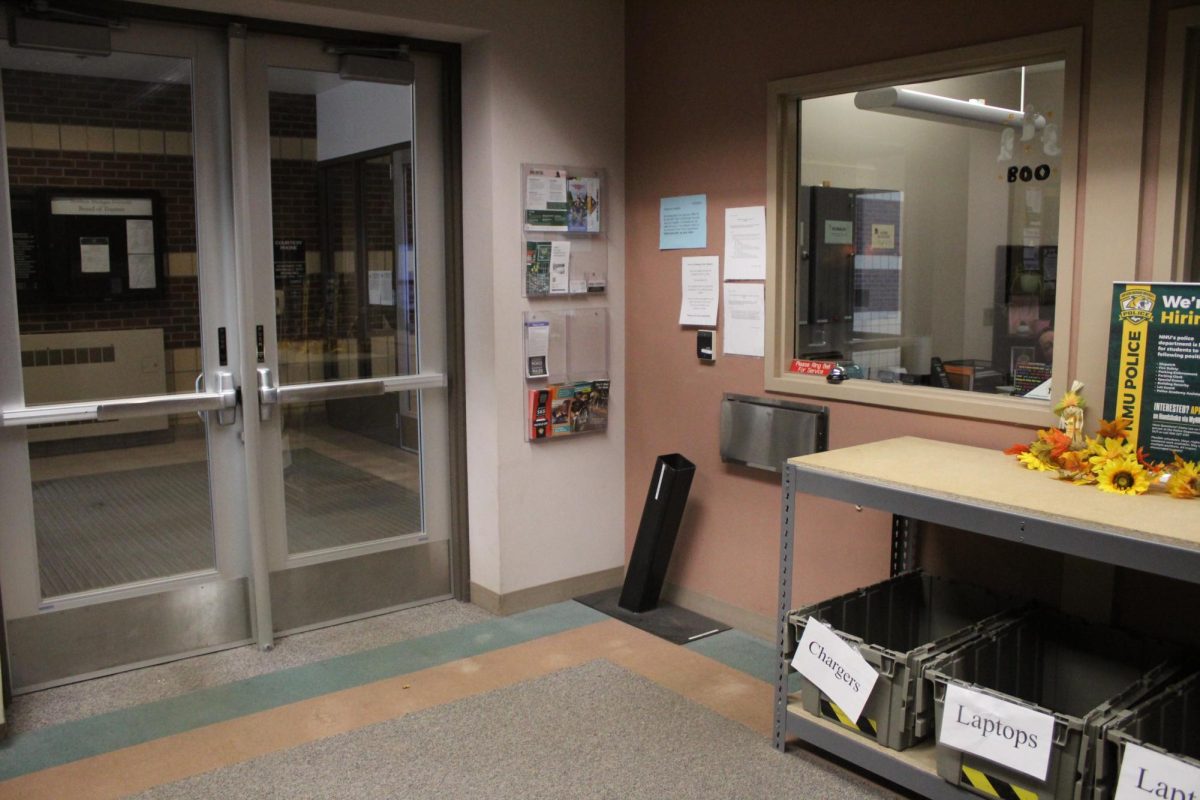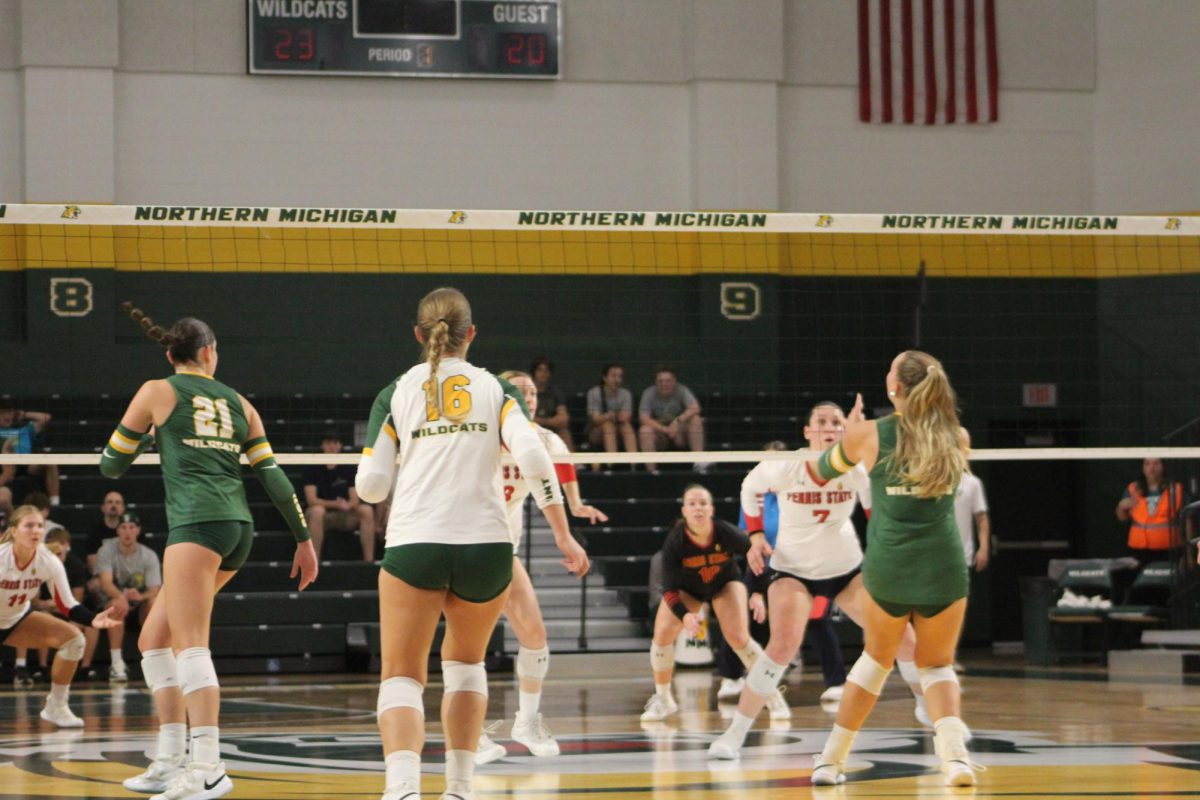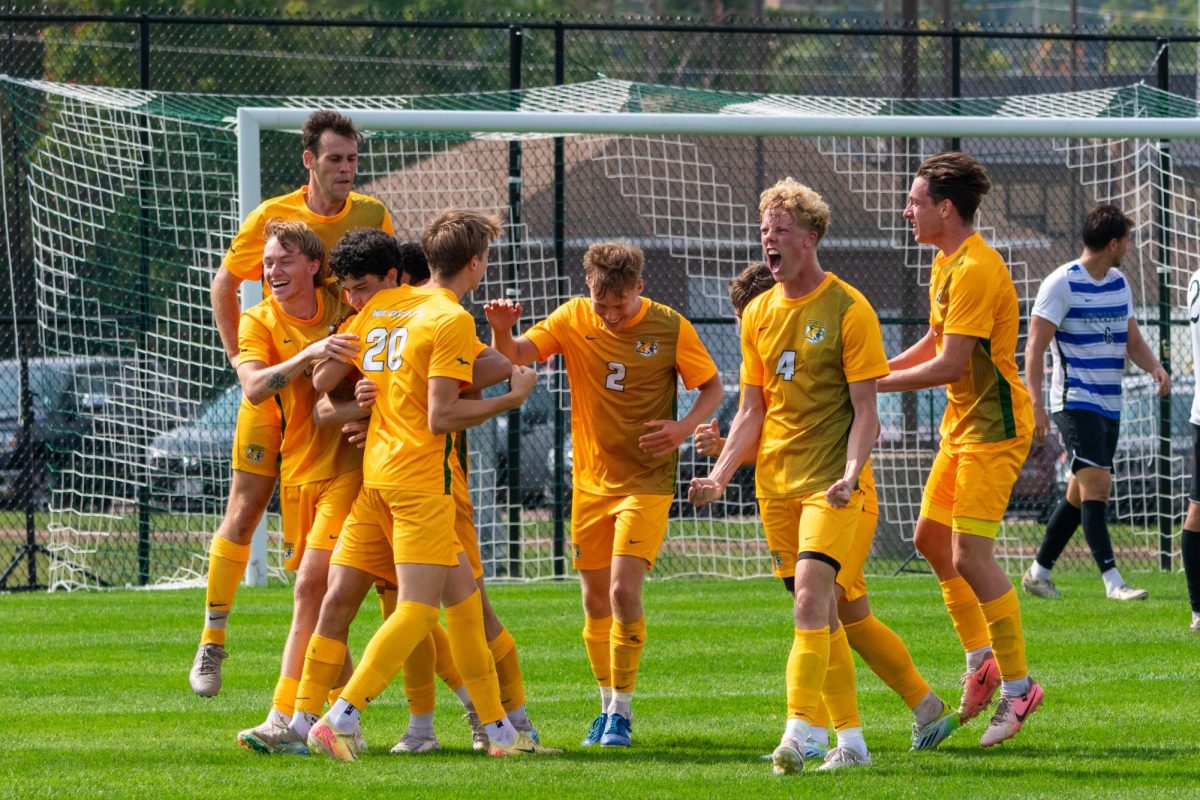Even though NMU athletics are delayed due to both the GLIAC and WCHA pushing back the start of their seasons, student-athletes are still getting tested for COVID-19 weekly.
Following NCAA and emerging guidance from the WCHA, NMU is currently testing at least 25-50% of athletes that compete in intermediate to high risk level sports on a weekly basis, Dr. Christopher Kirkpatrick, medical director for NMU said. That timeline is based on the fact that athletic competition isn’t currently taking place, but practice participants are following this closely. This process started several weeks ago, Kirkpatrick said, and it’s occurring every two weeks.
“It just happened that they did that one Monday, and then the next Monday is my campuswide testing, next Monday is the athlete testing, so this past Monday they did about 145 student-athletes as part of that testing,” Kirkpatrick said.
The testing takes place on Mondays, and all results are typically received on the following Tuesday night or Wednesday, Kirkpatrick said. He’s also in charge of the athletic trainers for administering testing, and the trainers collect the samples from athletes every two weeks. NMU is currently using the saliva testing method, and samples sent out to a lab that does Polymerase Chain Reaction testing, which is the gold standard, Kirkpatrick said. Despite having very few positive cases thus far, the process has gone relatively well, he said.
This timeline is only based on teams practicing and not participating in games, but once competition begins, athletes will be tested three times per week, Kirkpatrick said. Mid-November has been talked about as the date that this phase will begin at NMU, as long as sports continue as expected. However, with the COVID-19 pandemic in itself, there’s a chance that sports don’t happen right on schedule.
“As we get closer, of course things are heating up here in Marquette County with regards to the virus and the prevalence and the spread,” Kirkpatrick said. “We constantly reevaluate the plans for sports moving forward kind of in the big picture.”
NMU’s transitioning into testing in-house instead of relying on the long turnaround, and they’re building capacity up so that they can hopefully test student athletes at the clinic in the lab, Kirkpatrick said. No matter if testing takes place at the health center or results are received from elsewhere, a potential problem that’s created from COVID-19 testing is false negative or false positive results.
The basis for recommendations of three times a week testing is that in addition to watching for symptoms, if you test more frequently, that frequent testing has a greater chance of catching a case rather than if you got a false negative test, Kirkpatrick said. If athletes test again in two days, they get another chance for the test to perform as it’s supposed to.
“That’s always a concern, whenever we get a test result; you kind of always keep the clinical context in it as well,” Kirkpatrick said. “I spend a lot of my days taking care of students and faculty and staff if they test positive or negative, and counseling them on what that really means.”
This greater chance of accurate tests is one of reasons for frequent testing for athletes. The staff has also been dealing with the incubation period of the virus being up to 14 days, and the possibility of people being asymptomatic and having the virus but not having any outwards symptoms of it, Kirkpatrick said. This is something that’s troubling for the entire world trying to handle the pandemic, and NMU’s medical staff is doing the best it can to maintain a system for student athletes to practice and eventually play in competition.




























